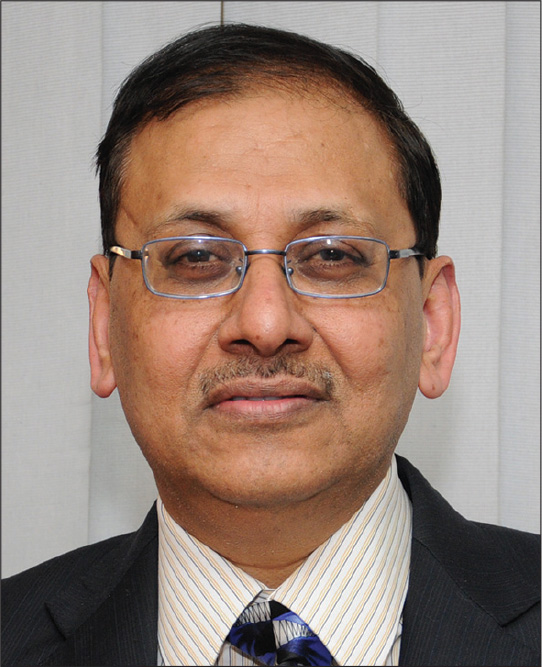 PTC India Limited, incorporated in 1999, has played a pivotal role in developing the Indian electricity market for over two decades. The company has grown from strength to strength with traded electricity volumes witnessing a growth rate of 13 per cent in the past few years and cross-border power trade accelerating with growing regional cooperation in South Asia. Given the optimistic outlook for the power market in the country, the company is now planning to launch a new-age energy exchange in the next few months. In an interview with Power Line, Deepak Amitabh, Chairman and Managing Director, PTC India Limited, spoke about the sector’s progress, challenges and outlook, as well as the company’s future plans…
PTC India Limited, incorporated in 1999, has played a pivotal role in developing the Indian electricity market for over two decades. The company has grown from strength to strength with traded electricity volumes witnessing a growth rate of 13 per cent in the past few years and cross-border power trade accelerating with growing regional cooperation in South Asia. Given the optimistic outlook for the power market in the country, the company is now planning to launch a new-age energy exchange in the next few months. In an interview with Power Line, Deepak Amitabh, Chairman and Managing Director, PTC India Limited, spoke about the sector’s progress, challenges and outlook, as well as the company’s future plans…
What, in your view, have been the most noteworthy achievements in the power sector over the past 25 years?
The journey of transformation started in 1998 with the enactment of the Electricity Regulatory Commission (ERC) Act, 1998, which was followed up by the Electricity Act, 2003; the National Electricity Policy, 2005; the Tariff Policy, 2006; and the Power Market Regulations, 2010, among others.
In my view, the most noteworthy achievements would be the enactment of the ERC Act, 1998 and the Electricity Act, 2003. While the former endeavoured to provide a level playing field for all participants, the latter paved the way for corporatisation of the power business by unbundling transmission, generation and distribution. Its impact was further enhanced by the delicensing of generation facilities. The twin objectives of availability and affordability were addressed to a large extent by these fundamental and structural changes. The Power Market Regulation 2010 brought the design of very short-term markets into focus.
How has the power market in India evolved over the years? Do you think that the draft National Electricity Policy (NEP), 2021 can help address the challenges faced by the power trading segment?
The draft NEP endeavours to develop the Indian power markets to fully benefit the consumer in an environment of adequate reserves, affordable and available power, competition and choice. The light-handed regulations are consistent with a competitive market focus, integrated planning and a framework for faster implementation. The decision-making framework has been further strengthened with economic, social and technological dimensions. All of the above collectively endeavour to bring in efficiency and transparency in the sector.
The basic building block of any market-based initiative (including trading) is efficiency and transparency of/in the system, which the NEP is attempting to implement.
“The power trading market is at the cusp of the next level of growth, primarily driven by market-oriented policy initiatives, including a willingness to reform distribution.”
What is your outlook for the power trading market, volumes, prices, etc., in the medium to long term? What more is needed to deepen the power trading market?
The power trading market is at an inflection point, primarily driven by the market-oriented policy initiatives of the Government of India, including a focus on reforming the distribution sector. Trading involves optimisation of an existing resource base, thereby deferring investment in additional capacity. It also promotes investment by offering a service to access demand in the unserved power markets.
In the medium and long term, we see a firm demand due to the natural growth in urban population, more latent demand converting to express demand, and shifting of the mobility business to electricity. Supply is likely to be a little constrained as new (thermal and hydro) capacities are still at the planning stage, and renewable capacities have their own limitations in terms of supplies, intermittent timing and quantum. The price matrix is a functional derivative of demand-supply parameters, with seasonal variations and emergent events.
Distribution sector reforms provide a big opportunity for trading services in the sector as they enable consumers to reap the benefits of a comprehensive design of the market. Reforms such as multiple service providers in the electricity supply business and lowering of open access capacity from 1 MW to 500 kW will improve competition and bring in affordability and reliability.
“The draft NEP endeavours to develop power markets that would fully benefit the consumer through competition and choice. The light-handed regulations are consistent with a competitive market focus and integrated planning.”
What is your outlook for cross-border power trading, going forward?
Cross-border power trading is governed by the cross-border energy trade Guidelines issued by the Central Electricity Regulatory Commission. Interconnected neighbouring countries are expected to be beneficiaries of these power trading solutions through India. At present, the entire surplus power from hydroelectric projects in Bhutan is being supplied to India through PTC. In addition, Nepal is also being supplied power through radial lines connecting it to the state of Bihar – the 400 kV Muzaffarpur-Dhalkebar line and the 133 kV Tanakpur line. Further, around 1,000 MW of power is being supplied to Bangladesh through the Berhampore–Bheramara high voltage direct current line.
Regional energy cooperation is high on the agenda of the respective governments of these countries, and with new generation capacity being developed in Nepal, trading relations are bound to be strengthened further.
By and large, supplies from sustainable sources will be key for long-term electricity trading relations with neighbouring countries.
 What have been PTC’s biggest achievements in the past few years?
What have been PTC’s biggest achievements in the past few years?
In the past few years, we have been able to grow our volumes consistently at 13 per cent per annum. Last year, we achieved the highest ever traded volume of 80 BUs. We have become the first port of call for electricity trading services in India. Moreover, in the past few years, we have acted as a catalyst in bringing in stranded thermal capacity with bankable power purchase agreements, which has helped in making 1,900 MW of stranded capacity operational for three years, and 2,500 MW of similar capacity is under processing. These events validate the role of a trader in correcting market distortion and improving efficiencies.
“Our value-added services, technologycentric solutions, and endeavour to shift from business-to-business to business- to-consumer in rolling out solutions will be the key focus areas in the coming years.”
What will be PTC’s focus areas in the coming years? What are some of the growth avenues that the company is looking at?
PTC is evolving along with sectoral needs, demand and situations. Our value-added services, technology-centric solutions, and endeavour to shift from business-to-business to business-to-consumer in rolling out solutions will be the key focus areas in the coming years.
PTC recognises the shift to technology as the mode of conducting business. Accordingly, it is investing heavily in technology development and testing service roll-out. In the same vein, PTC, along with the Bombay Stock Exchange and ICICI Bank, is in the process of launching a new-age energy exchange, which is expected to become operational by the end of this financial year.



